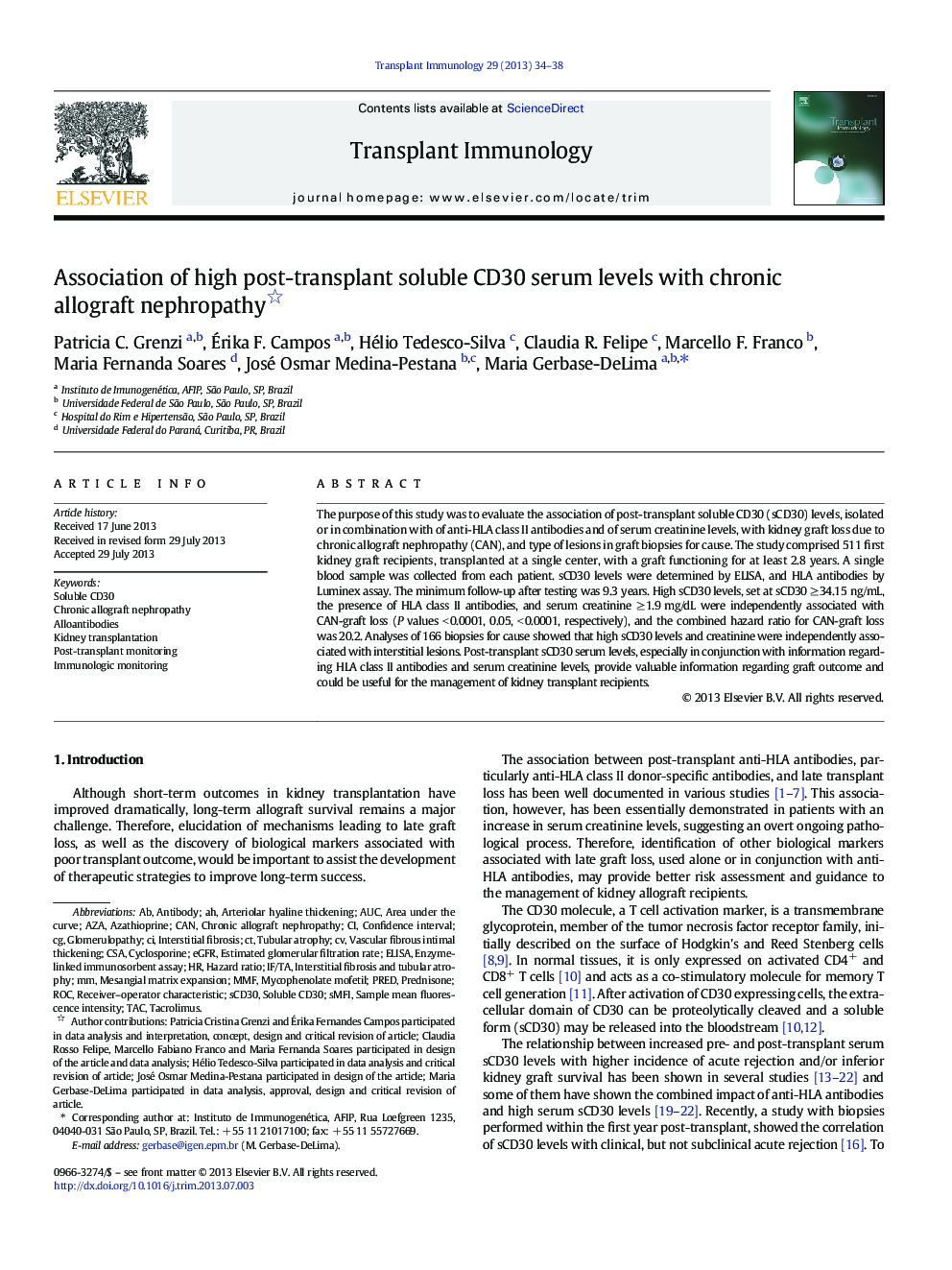| Article ID | Journal | Published Year | Pages | File Type |
|---|---|---|---|---|
| 6126023 | Transplant Immunology | 2013 | 5 Pages |
Abstract
The purpose of this study was to evaluate the association of post-transplant soluble CD30 (sCD30) levels, isolated or in combination with of anti-HLA class II antibodies and of serum creatinine levels, with kidney graft loss due to chronic allograft nephropathy (CAN), and type of lesions in graft biopsies for cause. The study comprised 511 first kidney graft recipients, transplanted at a single center, with a graft functioning for at least 2.8 years. A single blood sample was collected from each patient. sCD30 levels were determined by ELISA, and HLA antibodies by Luminex assay. The minimum follow-up after testing was 9.3 years. High sCD30 levels, set at sCD30 â¥Â 34.15 ng/mL, the presence of HLA class II antibodies, and serum creatinine â¥Â 1.9 mg/dL were independently associated with CAN-graft loss (P values < 0.0001, 0.05, < 0.0001, respectively), and the combined hazard ratio for CAN-graft loss was 20.2. Analyses of 166 biopsies for cause showed that high sCD30 levels and creatinine were independently associated with interstitial lesions. Post-transplant sCD30 serum levels, especially in conjunction with information regarding HLA class II antibodies and serum creatinine levels, provide valuable information regarding graft outcome and could be useful for the management of kidney transplant recipients.
Keywords
EGFRImmunologic monitoringsMFIsCD30PREDAlloantibodiesAZAROCIF/TAMMFTACAUCTubular atrophyazathioprineCSATacrolimusEnzyme-linked immunosorbent assayELISACyclosporineconfidence intervalInterstitial fibrosisInterstitial fibrosis and tubular atrophymycophenolate mofetilSoluble CD30area under the curveCANestimated glomerular filtration ratehazard ratiochronic allograft nephropathyAntibodyPrednisoneKidney transplantationglomerulopathy
Related Topics
Life Sciences
Immunology and Microbiology
Immunology
Authors
Patricia C. Grenzi, Ãrika F. Campos, Hélio Tedesco-Silva, Claudia R. Felipe, Marcello F. Franco, Maria Fernanda Soares, José Osmar Medina-Pestana, Maria Gerbase-DeLima,
